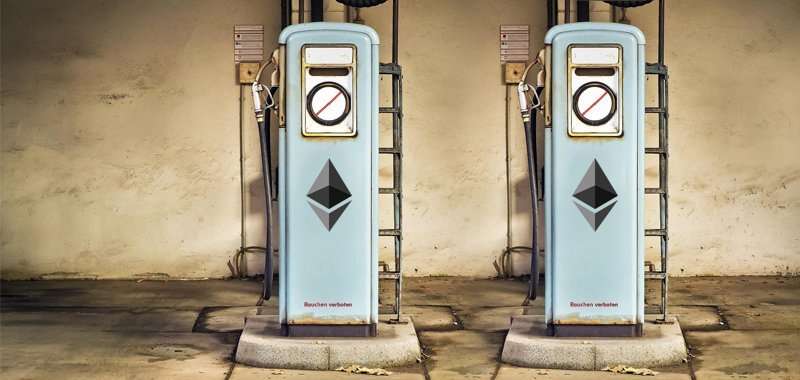Let’s dive into one of the most asked questions: what are Ethereum gas fees, what determines their price, and why do they get so expensive at times?
What Are Ethereum Gas Fees?
You may have heard the term “proof-of-work.” Proof-of-work (PoW) cryptocurrencies are mined and transactions validated by people using energy-consumptive equipment to run complex algorithms. Running these algorithms requires energy on the miner’s side, and gas fees are paid out to the miners to compensate for this energy cost. Gas fees are paid if the work is put in to validate the transaction, even if it fails since the miner has still expended energy on their side to attempt validation.
If gas fees didn’t exist, mining Ether would likely not be a profitable endeavor, and no one would create new tokens or validate transactions.
What Determines Gas Fees?
Miners are allowed to set certain gas fee thresholds that need to be met in order for them to validate your transaction. These fees are based on energy consumption and network traffic. As transaction volume increases, so will the gas fees.
You can always try to lower your gas fees manually in your transaction settings, but it’s effectively like bidding on eBay; the miners will almost always validate transactions paying higher gas fees before those with lower fees. In some cases, miners may outright reject your transaction if you set your gas fee below their threshold.
Why Are Gas Fees So High?
Transaction volume on the Ethereum network has been steadily increasing since January of 2016. According to Etherscan, there were 8,233 transactions on January 1, 2016. On May 11, 2021, transaction volume hit an all-time high, at a jaw-dropping 1,716,489 transactions.
Will Gas Fees Ever Be “Fixed?”
On April 15, 2021, the “Berlin Hard-Fork” went live on the Ethereum network. This fork implemented Ethereum Improvement Proposals (EIPs) 2565, 2718, 2929, and 2930. These proposals reduce gas costs for certain transactions, make transactions backward-compatible, increase gas fees for “op code” transactions that can be used for denial-of-service attacks, and allow users to create transaction templates for complex transactions. These network upgrades were designed to help lower fees and serve as a stepping stone for the “London Hard-Fork” that is set to take place in July.
The London Hard-Fork will introduce EIP-1559, a controversial upgrade that may result in fewer profits for miners. EIP-1559 will initiate a protocol meant to keep the block size around 50% by doubling the block size and keeping the same target size. EIP-1559 also establishes algorithmically computed base fees, as opposed to estimated prices.
As the block size increases above 50%, transactions will become too expensive for many users, and transaction volume will decrease. When the block size drops below 50% again, the base fee will decrease, making it cheaper to transact.
Ethereum’s long-term plan involves migrating from a proof-of-work protocol to proof-of-stake (PoS). PoS currencies are minted, and transactions verified, using wallet size and coin-age, rather than powerful machines. Less energy consumption means significantly lower fees. Fees for PoS coins like Tezos often cost $0.20 or less, and when Ethereum makes the switch, their fees could be just as low.
Want more? Connect with NFT Plazas!
Join the Weekly Newsletter
Join our Discord
Follow us on Twitter
Like us on Facebook
Follow us on Instagram
*All investment/financial opinions expressed by NFT Plazas are from the personal research and experience of our site moderators and are intended as educational material only. Individuals are required to fully research any product prior to making any kind of investment.

NFT Artist. Musician. Founder of Crescendo.

